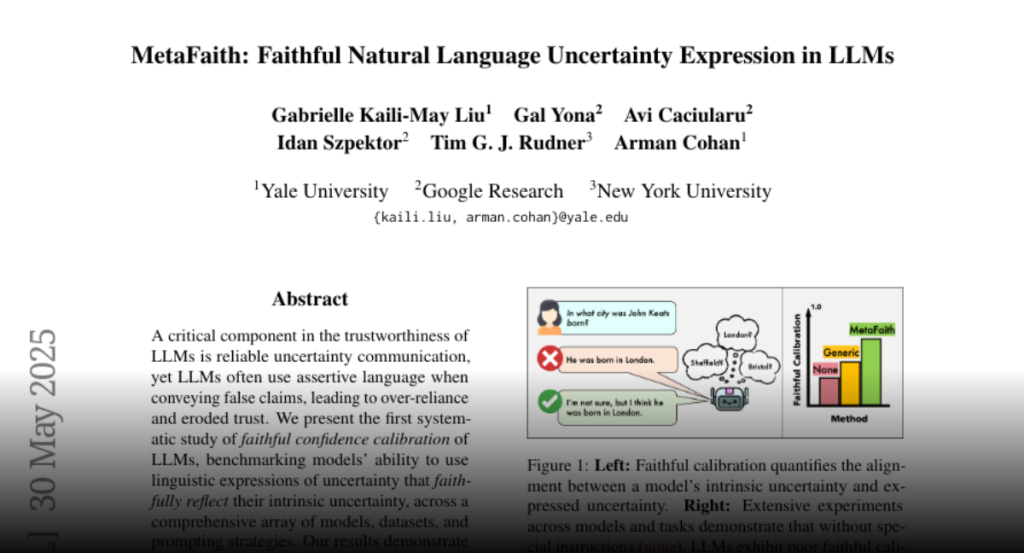A study reveals that Large Language Models (LLMs) struggle with expressing uncertainty accurately and introduces MetaFaith, a prompt-based method that enhances their calibration significantly.
A critical component in the trustworthiness of LLMs is reliable uncertainty
communication, yet LLMs often use assertive language when conveying false
claims, leading to over-reliance and eroded trust. We present the first
systematic study of faithful confidence calibration of LLMs,
benchmarking models’ ability to use linguistic expressions of uncertainty that
faithfully reflect their intrinsic uncertainty, across a
comprehensive array of models, datasets, and prompting strategies. Our results
demonstrate that LLMs largely fail at this task, and that existing
interventions are insufficient: standard prompt approaches provide only
marginal gains, and existing, factuality-based calibration techniques can even
harm faithful calibration. To address this critical gap, we introduce
MetaFaith, a novel prompt-based calibration approach inspired by human
metacognition. We show that MetaFaith robustly improves faithful calibration
across diverse models and task domains, enabling up to 61% improvement in
faithfulness and achieving an 83% win rate over original generations as judged
by humans.

